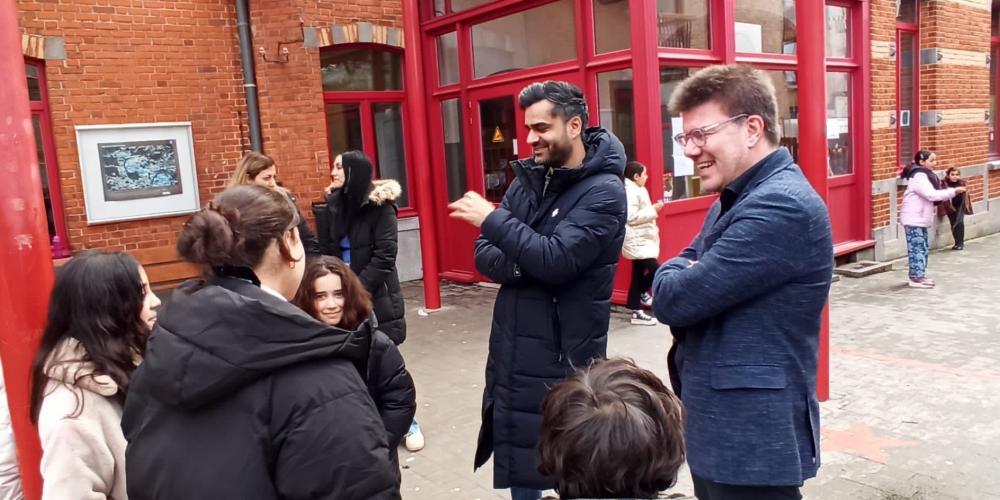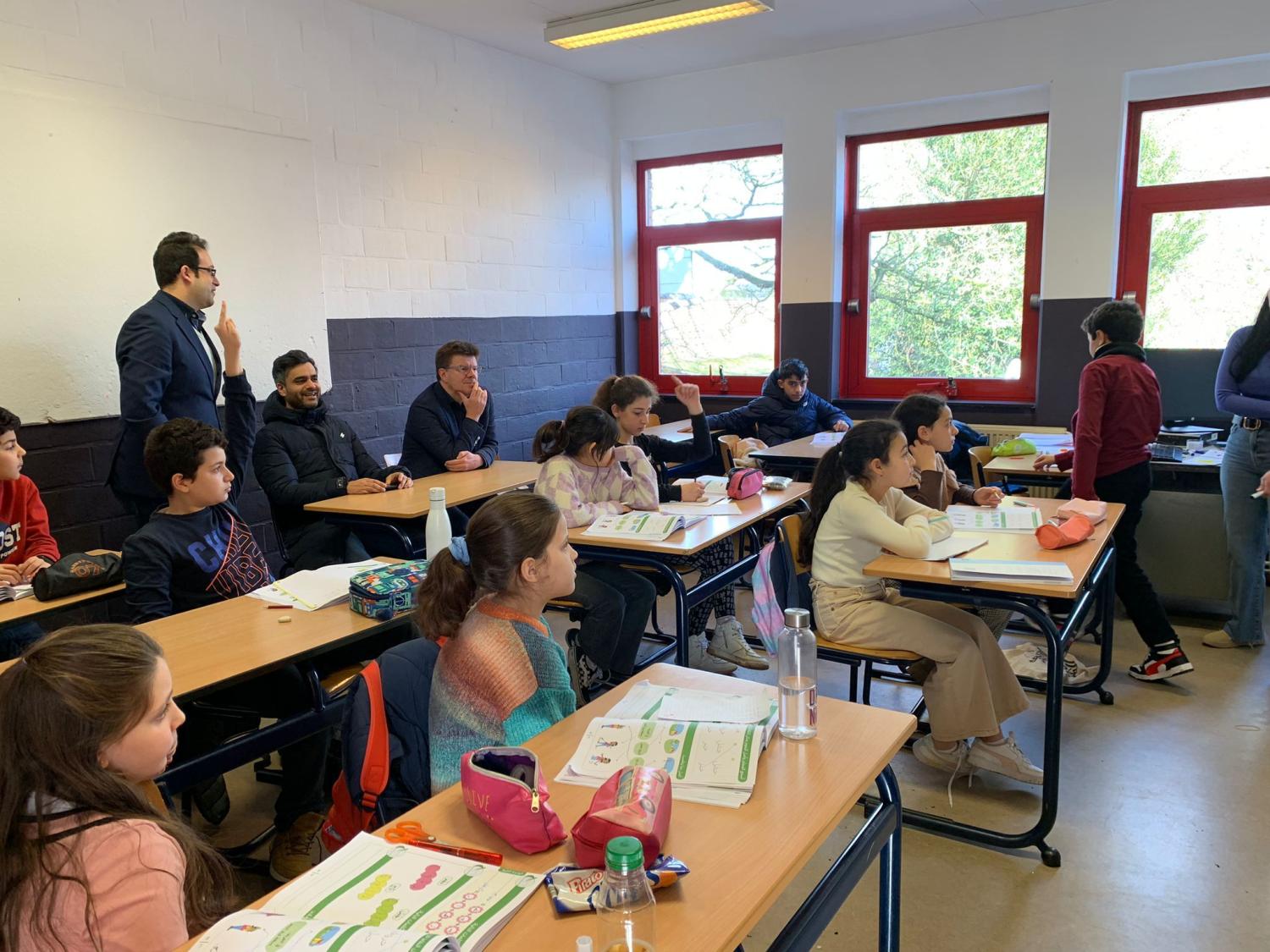
On Saturday 11 March, Sven Gatz, Brussels Cabinet Minister for finance, Dutch-language education, civil servant affairs, and multilingualism, visited a school in Anderlecht. Yes, it was a Saturday, because this is when the Alef programme, run by the Vrije Universiteit Brussel and managed by VUB International Relations office colleague Sami Azar, have their Arabic language classes for children between 6 and 15. The classes are held outside the regular school times, to enable all children to follow the classes. The project was set up in 2016 to encourage people to maintain their heritage language, and to motive others to learn new languages, and of course, Arabic is a world language. Alef by the way, is the name of the first letter of the alphabet in Arabic.
Sven Gatz came to the Anderlecht school, with his adviser, Sheraz Rafi, to see first hand what the children learn. The school is one of four in Brussels where 300 children get taught Arabic by teachers who are all refugees They are supported by the VUB’s experts in linguistics and second language acquisition. The children are taught from a new curriculum that is designed across eight levels matching the various stages of proficiency and age of the children. The books and classes’ content are derived from mainstream schools’ curriculum, and include intercultural elements to help integration.
The visit by Minister Gatz was within the framework of BeTalky, an initiative by the Brussels Capital region to promote multilingualism in Brussels. During his visit, Sven Gatz particularly noted how good the relationship and interaction is between the teachers of the Alef programme, and the children in the classroom. The dynamic between the two was impressive, and he hoped that there would be similar initiatives like the Alef programme in the future.
As a socially-connected university that is engaged within its urban environment, the Alef programme allows the VUB to take up its societal responsibility regarding social challenges such as the refugee crisis, promoting diversity in Brussels, and emphasising the importance of multilingualism.
More information on the Alef programme can be found online.
Brussels Cabinet Minister Sven Gatz visits the Alef programme

Brussels Minister Sven Gatz sits in on an Arabic language class, part of the Alef programme